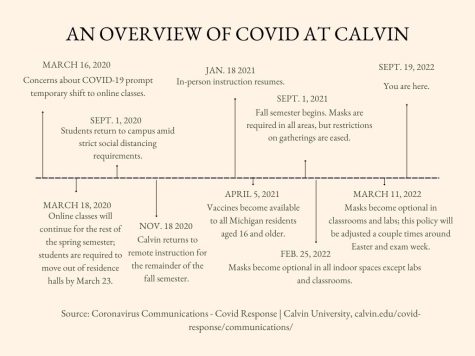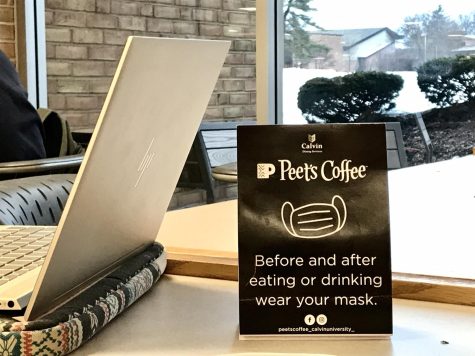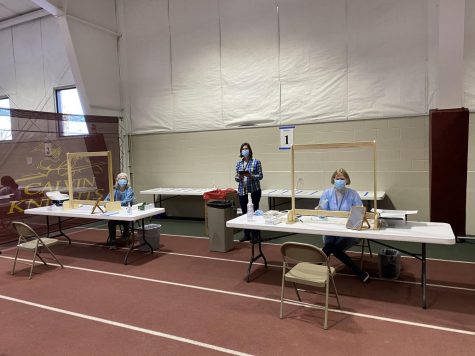Students miss in-person interaction but get more sleep during online learning

The move to online learning has impacted every single student at Calvin University, without exception. While nothing can compete with in-class learning, some students are finding online classes to be helpful.
First-year Kameryan Koning had but one pro: that his now-relaxed schedule allowed him more sleep. He added that this could be a con, as “now it makes it harder to concentrate and find the motivation to do work.” Koning brought up the fact that for film, music, theater and other artistic majors, many of the facilities such as equipment rooms or studios are closed. Many projects, like the COMM 351 film projects, have been halted for the foreseeable future.
Koning added that some professors have added work to their syllabi, positing that students will have more time available to complete assignments.
Kate DeHaan, a sophomore writing major, shared pros and cons. “Some positives are relaxed deadlines, and getting to do school on my own time. I do really miss seeing people. Some of my profs are technologically challenged, and I dearly miss their feedback.” Since in-person feedback is impossible at this time, virtual feedback is unfortunately the only option students have. However, students can still email or video call their professors with questions.
Lily Smith, a senior in the Communications department, said, “Personally, I’ve already had experiences learning online in the past so it’s of no detriment to me. Also as an introvert and someone who likes to decide their day at their own pace, it suits me better. I can understand how, for many, not meeting face-to-face and being able to express their concerns and questions for the class in this way may be hard.” Echoing DeHaan’s comments about the merits of face-to-face professorial feedback, Smith added that virtual feedback may work better for some students.
Connor Veenstra, a fifth-year film and media production major and former Chimes reporter, said, “I have ADHD, which already makes sitting through lessons difficult. When you take me out of the physical classroom, it takes away that tangible reminder that I have work to do.” An article on how teachers can be better online educators from “The Chronicle of Higher Education” says that professors should try to empathize with students, as they are isolated now more than ever, and the highly collaborative nature of the collegiate classroom has been essentially removed.












